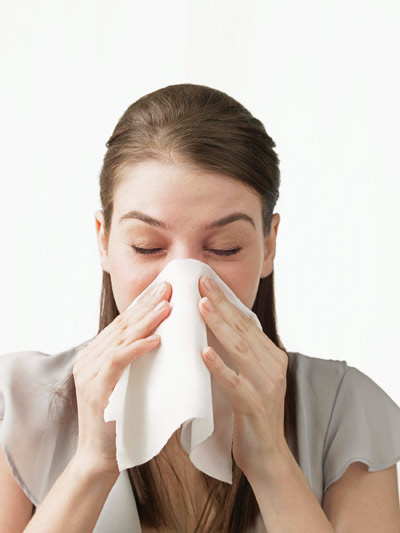
Fall has arrived and we are gearing up for the regular cold and flu season – remember the good old days?
Some of the best things you can use to combat these seasonal scourges include plenty of vitamin C, which helps in so many ways. A good rule of thumb for dosing is 1,000 mg of vitamin C for general use, 1,500-2,000 mg if you are regularly exposed to lots of people such as an office or classroom setting. If you feel you are coming down with something, taking 500 mg of vitamin C every hour or two until you reach bowel tolerance can be very helpful.
Elderberry tincture, extract or capsules is a direct antiviral supplement. Israeli researchers discovered a compound in elderberry dissolves the protein spike on cold and flu virus, making it more difficult to penetrate the cell wall. Combining vitamin C with elderberry is a one-two punch against cold and flu virus. Vitamin C strengthens the cell wall and elderberry blunts the spike- voila! The cold or flu virus dies.
Zinc is very helpful for general immune system function; wound healing and nervous system health. With the pandemic people increased their zinc intake dramatically. For cold and flu season, using a zinc lozenge can be very helpful. The zinc coats the throat, which is where your cold and flu virus is trying to gain a foothold (the traditional sore throat.) By sucking on a zinc lozenge you are disrupting the virus’s ability to replicate. A zinc /elderberry lozenge is a winning combination.
Taking Echinacea or medicinal mushrooms helps with general immune function. Echinacea helps to increase white cells – or if you have enough, it makes them friskier. Medicinal mushrooms include Reishi, Maitake, Shitake and Turkey Tail to name just a few.
Dear Jonathan,
I have not been able to get a decent night’s sleep for months. The over the counter products just leave me groggy in the morning like I had too much to drink. Are there any natural herbs to help with sleep?
Janice
Dear Janice,
There are so many supplements to help with sleep. These past months of the pandemic have caused many people many sleepless nights.
Stress and anxiety play a big role in sleep problems. Nutritionally, B complex and magnesium can help with the damaging effects of stress. The B vitamins help with your nervous system and give your body a good base to deal with stress and anxiety. Magnesium also helps with the nervous system and is a muscle relaxer. I have written previously about the importance of magnesium in the diet (check www.Primeontheweb for past columns).
Herbally, there are many plants to choose from, both individually and in formulas.
For example Hops (Humulus lupulus), Valerian (Valeriana officinalis),Passion Flower (Passiflora incarnata), Chamomile (Matricaria recutita), Kava Kava (Piper methysticum), Oatstraw (Avena sativa), Scullcap (Scutellaria lateriflora), St. John’s Wort ( Hypericum perforatum), California Poppy (Eschscholzia californica), Hawthorn (Crataegus spp.) , Holy Basil (Ocimum sanctum and O. gratissimum), Jamaican Dogwood (Piscidia erythrina), Lavender (Lavandula angustifolia), Lemon Balm (Melissa officinalis), Schisandra (Schisandra chinensis),Ashwagandha (Withania somnifera), and Catnip (Nepeta cataria) all have relaxing qualities among other functions.
Essential oils such as Roman Chamomile (Anthemis nobilis), German Chamomile (Matricaria chamomilla), Clary Sage (Salvia sclarea) or Lavender (Lavandula angustifolia) are some of the best choices for sleep. As always, these oils should be diluted in a carrier oil and not applied neat or pure. Using the oils neat on a regular basis can lead to building a resistance or allergy to the oils.
I remember in the early days of my wife’s studies of essential oils she received German Chamomile and wanted to share it with me. She put a few drops on the palm of my hand. It looked like blue ink, due to the high chamazulene content. It smelled wonderful and, not to waste it, I then just wiped it on my chest. I laid down to watch the tube at 8 p.m. I woke up at 8 am. This is powerful stuff.
Of course, staying away from caffeinated beverages, chocolate and excess alcohol in the evening should be considered. Shutting off your phones and computers at night can be a big help. The blue light and electromagnetic fields are known sleep disruptors.
Using the above mentioned herbs can help with getting some good rest, but if your sleep pattern has been disrupted for any length of time it will take several weeks to get through it. If you expect to take lemonbalm tincture and get eight hours of sleep, it probably ain’t going to happen the first night. What I tell our customers is to follow the directions on the bottle and if you wake up after a couple of hours (as is your habit) just take another dose. If you are still awake in 20 minutes or so, take another dose. The worst that will happen is you will fall asleep, but you will wake refreshed without the grogginess of the over the counter products.
Each person’s experience is different, and you have to find what works best for you. After a time, these waking periods should disappear.
Jonathan
Send questions on botanical remedies to: Natures Rx: Jonathan Evans at Herbarium258@gmail.com, or by regular mail to: The Herbarium, 264 Exchange Street, Chicopee, MA. 01013. If requesting additional info, include a stamped, self-addressed envelope.